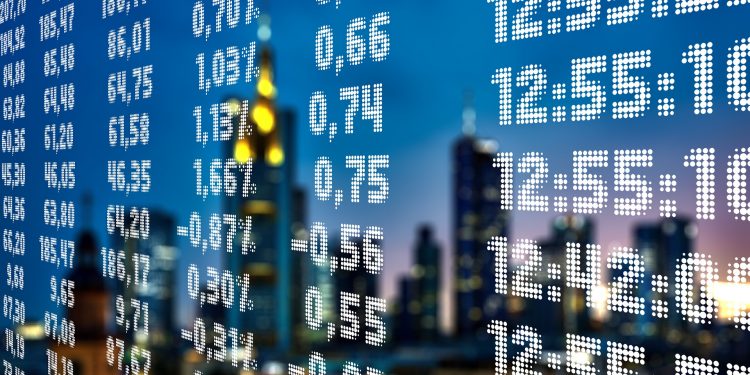In his column on equity markets, Ateev Dang provides a commentary on recent market developments in Australia and around the globe.
Lloyd Blankfein, the former Goldman Sachs CEO, said on Sunday that he believes that the economy is at risk of going into recession as the US Federal Reserve continues to raise interest rates to tackle rising inflation.
Fears of a recession were further stoked this month when data showed that the US economy shrank by a 1.4% annualised rate in the first quarter. Roger Ferguson, former Federal Reserve Governor, stated that a recession was almost inevitable due to growing weakness in the global economy.
Of course, both Lloyd Blankfein and Roger Ferguson were speaking in terms of the US economy; however, as we saw during the last global financial crisis (GFC), a recession in the US can result in a global equity market crash. Australia is no exception.
Like the USA market, the Australian equities have tumbled this year amid concerns over high inflation, rising interest rates, the Russia-Ukraine war, China’s continued COVID lockdowns, and a slowing economy.
Add to that, the tech companies, which thrived during the pandemic, are also suffering as people return to work and spend less time at home; the tech sector is suffering massive losses as investors fear that companies like Zoom and Netflix, which were boosted by the pandemic, are now running out of steam.
The tech-heavy Nasdaq composite has so far erased trillions of dollars in market value this year, with investors dumping shares of everything from semiconductor companies to gadget makers to social media giants.
Netflix is a great example that saw its shares drop nearly 75% from its record high in November after losing 200,000 subscribers in its first quarter. Likewise, the market value of Zoom, another company that gained popularity during the pandemic, has dropped to $26 billion, slightly less than what its value was just before the start of the pandemic.
Last week the American markets recorded their longest losing streak since 2011. The damage in the Australian market was also unforgiving, with all sectors falling. Technology, real estate and communication shares were hit particularly hard. The technology sector in Australia, which is already in bear territory, lost another 4.5%, a clear sign that traders are moving away from growth stocks toward value stocks.
Earlier during the week, fresh economic data from China appeared to trigger some investor jitters as the Asian nation continued to fallout from recent COVID lockdowns. The data complicated an already cloudy picture for the Australian investors as it further stoked fear of recession.
Australia was one of the few nations that were able to ride through the GFC, thanks to the success story that was the industrialisation of China.
Since then, every time analysts and economists thought that Australia’s luck was running out, a Chinese government stimulus program would come to the island nation’s rescue. Chinese demand for Australian bulk commodity exports once again came to Australia’s aid in two years since the pandemic.
China’s ravenous appetite for iron ore and Australian coal once again boosted the Lucky country’s fortunes. However, with China already into a technical recession and its unemployment rates climbing, Australia is also on the verge of recessionary fears.
Comparing the Australian market to the US, where the inflation curve has taken root so deep that the Federal Reserve has no choice but to drive jumbo 50 basis point hikes over the next few months just to catch up.
The move-in, in turn, should boost US Dollar, resulting in Australia importing much of the inflation, thus requiring the Reserve Bank to raise interest rates further. This, in turn, should then tighten financial conditions very fast via a combined bond, stock, commodity and property market rout.
While many would argue, based on declines over the past three months, that the rout has already begun, we believe the markets have still not factored in a recession. So while investors in Australia are relaxed as the growth is good right now, they will be extremely myopic in their vision if they ignore the fact that almost all major global economies are in a state of shock.
China is rocked by COVID lockdowns and property bust, Europe by war and rising energy prices and the US by inflation and interest rate shocks.
With global growth already slowing and inflation rising, this makes things particularly dangerous for Australian markets. If RBA is forced to tighten its policy to fight the global inflation surge, it would need to do so through multiple rate hiking cycles over the next few months, with several analysts predicting interest rates above 2% by the end of 2022.
This should make the house prices fall. Based on house price corrections of 2001, 2008, 2012 and 2019, we can see that a correction of house prices results in house demand crumbling in Sydney and Melbourne. As such, based on that analysis, we can assume that house prices in Australia’s two largest economies should fall quite quickly.
This, in turn, will have a follow-on effect on demand for iron ore, coal, and LNG, which should reduce the money flow into these commodities, thus affecting the commodity prices that are so essential for the Australian economy.
Rising interest rates are often followed by a further decline in spending, impacting the retailers and often resulting in a deep recession which eventually should bring inflation to its heel.
However, the big question is, are markets factoring-in a recession? A quick look at the Australian 200 Index chart and we see that while the market is showing signs of exhaustion near the 7500 mark, it still continues to hold above the 7000 level. Compare it to the quick steep fall during the start of the pandemic in March 2020 and the recent tech nosedive; it should provide an early indicator of what could happen if a recession hits. We feel that given the current economic scenario where the economists are predicting a 50% chance of a recession, the market should be sitting closer to 6,500 points.
Thanks to the high commodity prices, the Australian market has performed relatively better than the US markets, which has benefitted the Australian miners and protected the market from much of the downside. The high earnings and rising dividends have also kept investor interest still in the market.
Recessions, however, hit earnings as we saw during GFC and the Covid crash of 2020. An average recession usually causes a 26% drop in earnings from peak to trough; however, the GFC saw a peak to trough earnings decline of more than 50%.
If we further compare it to the peak to trough earnings of the 2000 tech crash, 2008 GFC crash and 2020 COVID crash, we feel that the S&P ASX 200 at current levels has failed to take into account fears of a looming recession.
As per Jeffrey Gundlach, Chief Executive Officer and Chief Investment Officer of Double Line, the current stock-market setup is similar to 1999. A ‘calamity’ may be coming for markets potentially in 2023.
Disclaimer:
The writer’s opinions in the above article are his own and do not constitute any financial advice whatsoever. Nothing published by The NRI Affairs constitutes an investment recommendation, nor should any data or content publication be relied upon for investment activities. We strongly recommend that you perform your independent research and/or speak with a financial advisor or qualified investment professional before making any financial decisions.
Follow NRI Affairs on Facebook and Twitter for latest updates. Support us on Patreon.











